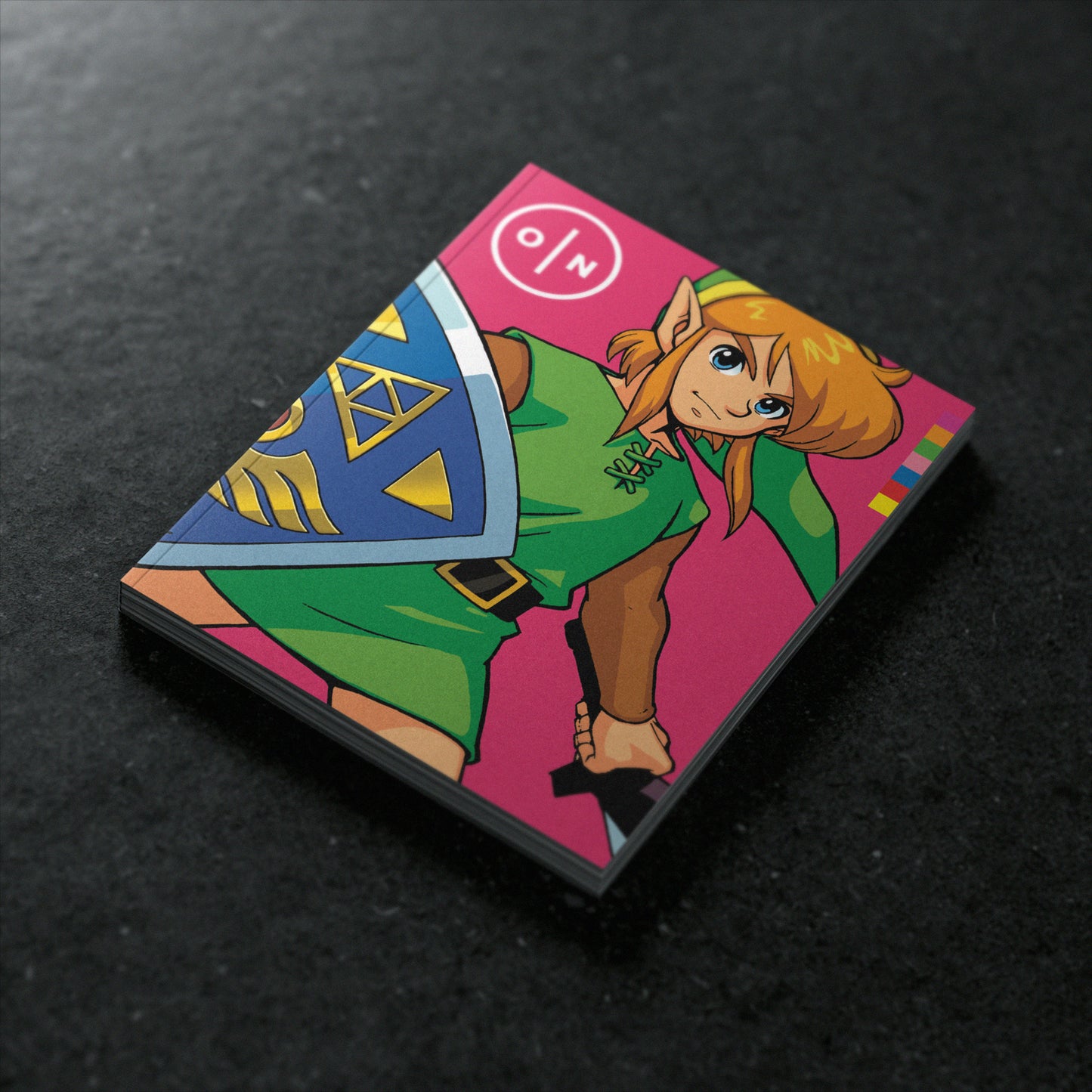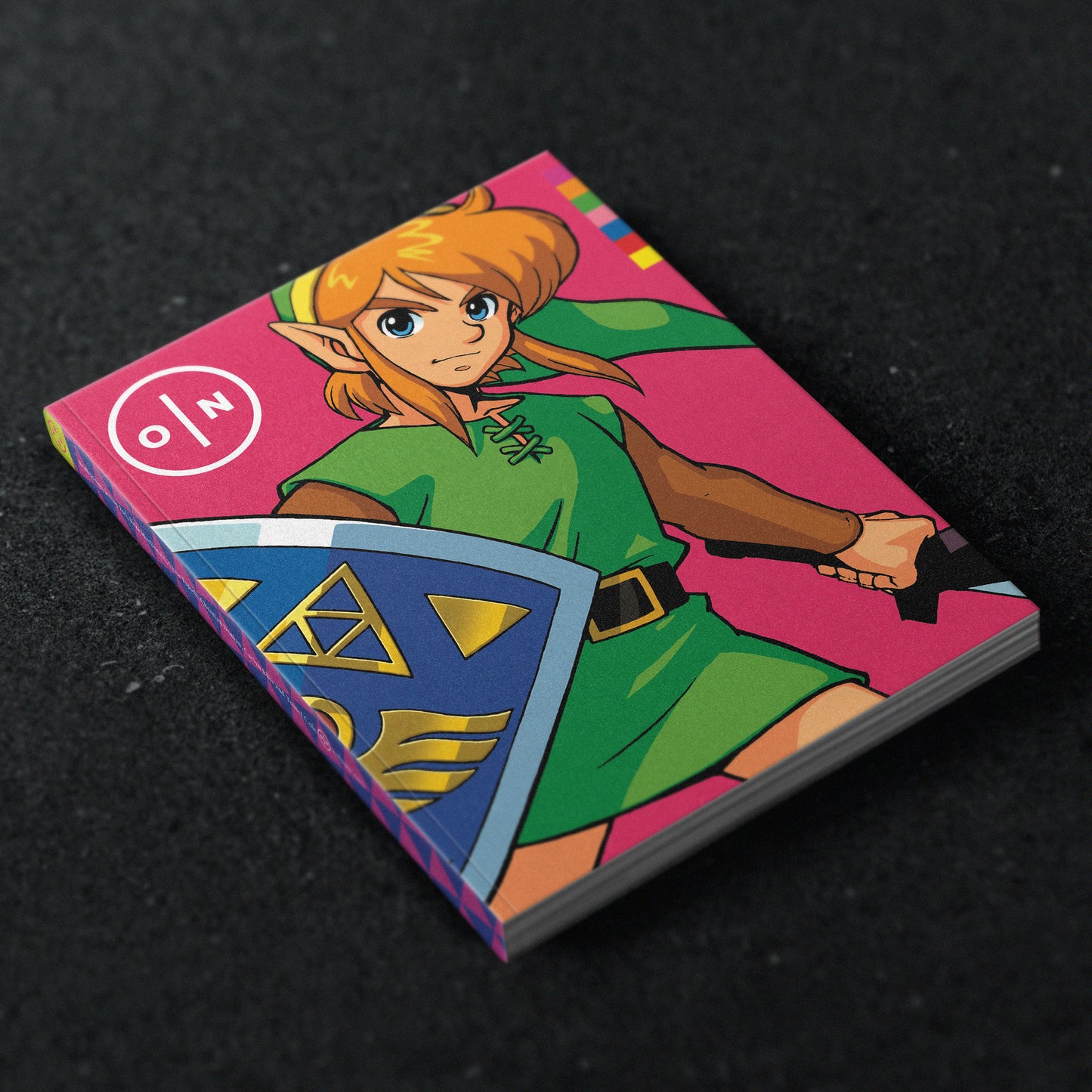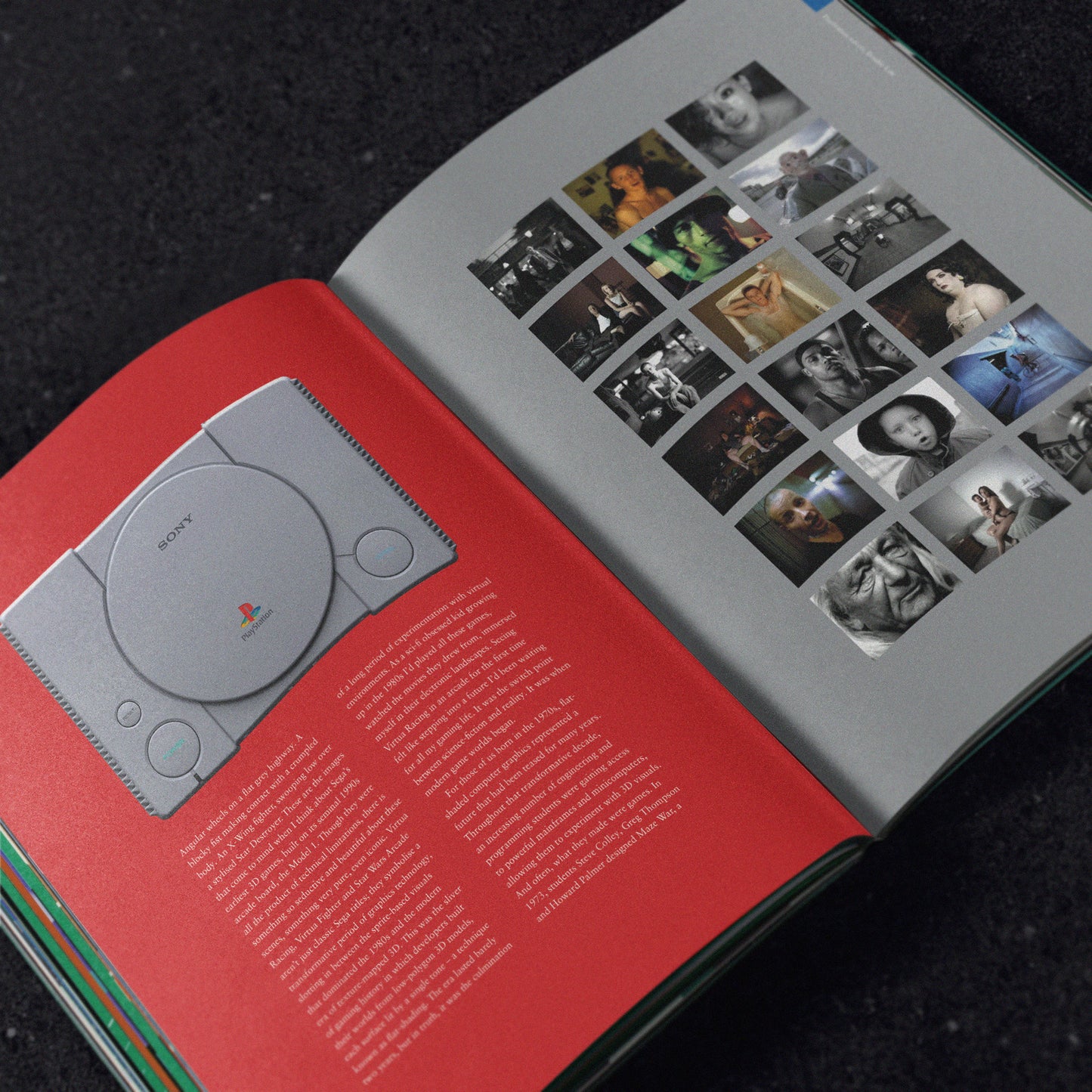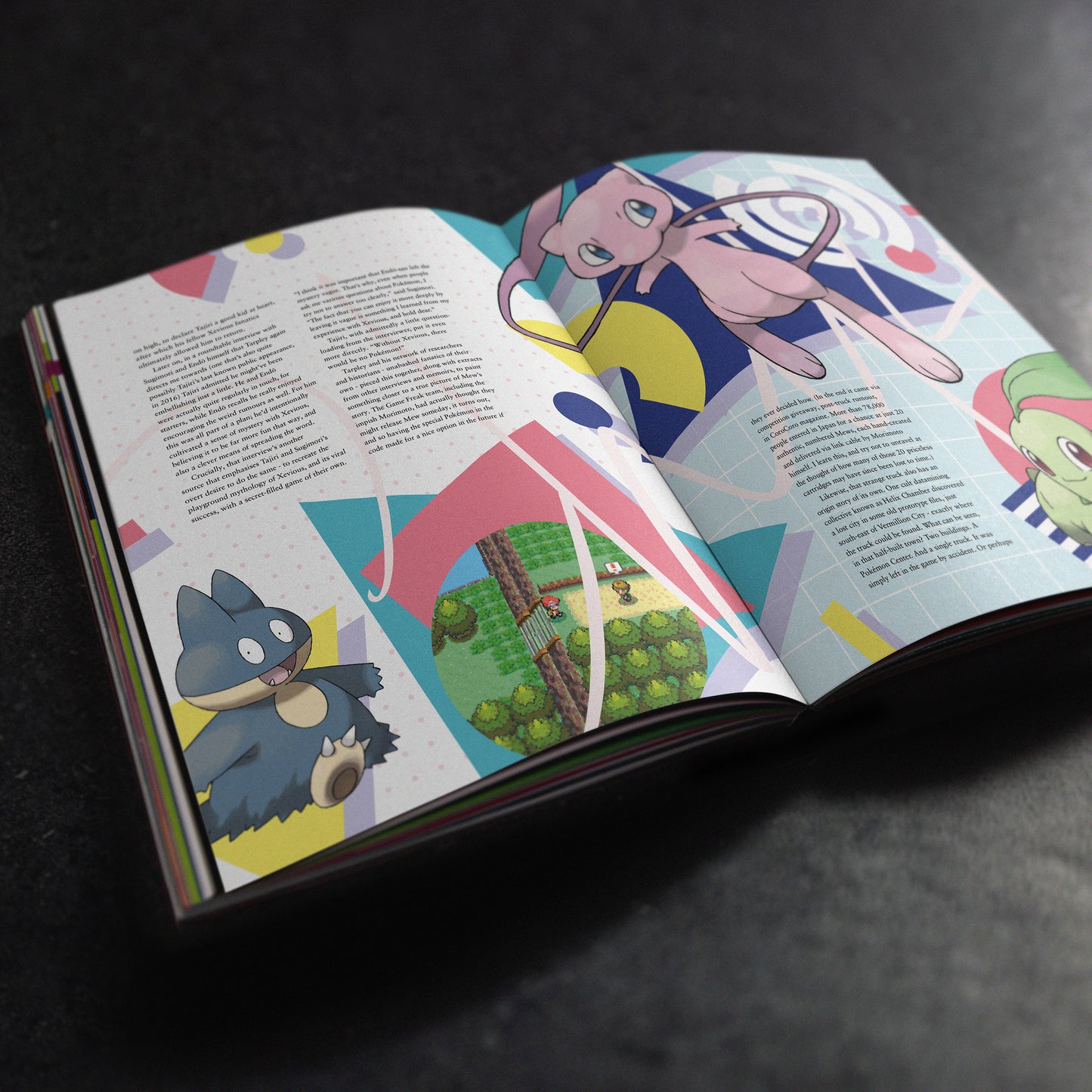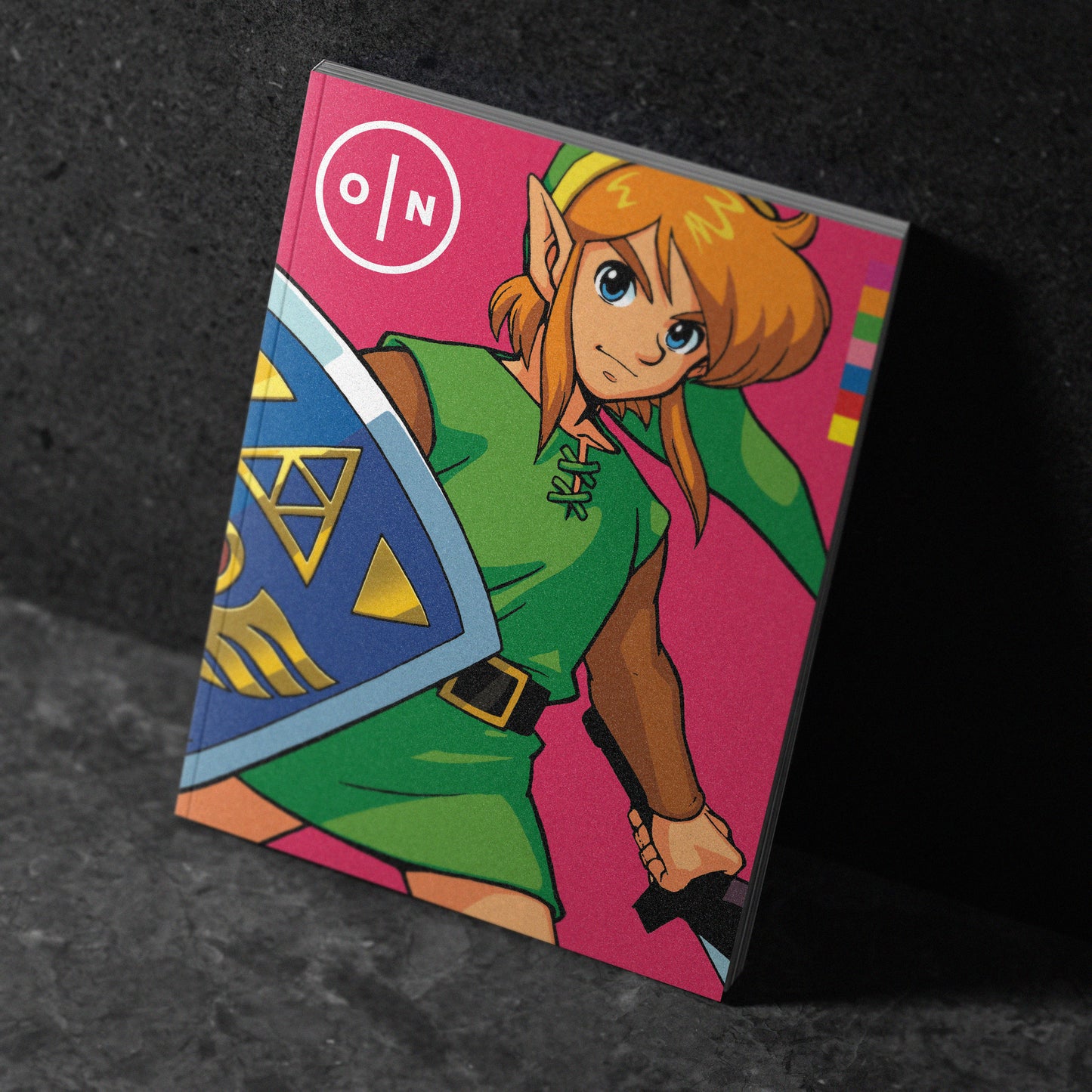Chris Tapsell ON the Pokémon that got away

Interview with Chris Tapsell
A fan since childhood, Chris Tapsell explores the myths and mysteries that give Pokémon its magic. In a quest to solve one of the series' most enduring mysteries surrounding the enigmatic Mew, Chris speaks to a Pokémon archaeologist and the founder of a kind of videogame book club for the close-reading of games. What he uncovers is a vital trace of the series' true spirit and fresh insight into its origins.
Chris Tapsell ON the Pokémon that got away ON: Volume Two.
When did Pokémon first grab you? Was the appeal immediate?
Chris Tapsell: I think it was probably the game to grab me, as in the first proper one that I was truly hooked to. Or at least it was a tie between Pokémon, Tetris, Crash Bandicoot and whatever Mario it was that I got hooked to on my dad's Game Boy. I was about seven-and-a-half (half years count at that age, obviously), and fully obsessed, in the way kids that age get. I don't remember the first moment I laid eyes on it sadly, but I know it was as soon as it came out - we got it late in the UK/Europe, after Pokémania had already started to take off in the States, who got it a year earlier, so by the time it turned up here I was fully primed. Trading cards, anime, movie - I was very lucky to get taken to New York with my family in early 2000, when the original Pokémon movie was already out on VCR there but not even in theatres in the UK. I remember coming back having seen it early (with a tape that didn't even work on UK players) and being just absolutely insufferable about it.

What do you think it was about the game that proved so irresistible?
Chris Tapsell: I think there's a few things - and hopefully it comes across that the piece itself is kind of secretly about this, actually. The obvious stuff is that collecting things, ticking off a big list, is just very appealing to a certain kind of brain, especially when you pair that with a pretty hefty degree of min-maxing and strategising. I maintain that a lot of Pokémon is really played in your head. As a kid that's "I wanna have a team with Blastoise AND Charizard, how do I get that?!" - when you get older and haven't shaken the obsession, it's building these complex competitive strategies, or still just planning out your squad for the next game before it's even out. But then beyond that, the real magic secret sauce, is mystery. There are all these necessary conditions for how irresistible Pokémon is - the cuteness factor and the characterisation, the pet-like nature of Pokémon themselves, just the central conceit of like, "what if your pet bunny could also shoot flames and battle your mean neighbour kid's one". But: Pokémania was really sparked by the mystery of Mew, the pre-modern-internet virality of this urban myth that actually did have some truth to it, only a different kind of truth, like all the best urban myths have. Mystery then becomes this running theme in Pokémon - there's an unidentified Pokémon in the first episode of the anime that flies across the sky! (It turns out to be a Legendary from the next, to-be-revealed generation.) There's all these in-game urban myths and hearsay, people telling you about some half-true thing they heard about Gyarados, or whatever, before you ever get to see one. There's big, actual legends and mythology in the lore. And then there's actual real, tangible mysteries here in the real world. The piece was in a way really me trying to find the thread that weaves all that together - I'm not even sure if it's possible.
You're trying to solve a Pokémon mystery in your piece - how long have you been aware of this particular mystery?
Chris Tapsell: I jumped the gun there didn't I. A while! Mew was the playground rumour, it was doing the rounds as I was first playing the game in late 1999. The magic of it though is that you "crack" this mystery rumour - you think you've read everything there is to read about how it happened and what the real truth was - and then it just goes and spawns another one, or gives you another thread, and you're off again. Pokémon!

You spoke to both a Pokémon archaeologist and someone who runs a book club for games? What does it say about the place games are in now that both these things exist? And were there any surprises once you started talking to them?
Chris Tapsell: I think firstly it says something brilliant that this is where games are now. They are their own thing, one. And they're massive - in this really unique way as well. Massive as in: we used to hear all the time about those people who were like, I dunno, a Gromit superfan - as in Gromit from Wallace and Gromit - and they'd have a room in their house dedicated to just Gromit. Gromit statues and coasters and scarves or whatever. Video games seem to summon this kind of obsession on an absolutely industrial scale, so you get these people - often teenagers, with perfectly active social circles, not this stereotypical recluse or anything - who clock off from school or university and immediately log on to their Discord server and tunnel back down into some huge, leaked database someone found from a half-finished Japanese-only demo from 1995. I love it - I almost love the culture of it more than the games themselves.
If you were recommending one Pokémon game to a total newcomer, which one would it be and why?
Chris Tapsell: Excellent question; much easier answer than people make it out to be. Pokémon Red or Blue (well, or Green in Japan... and maybe Yellow...). Anyway just play the first ones; Gen One. People like to suggest either the most recent ones, or maybe a semi-recent one that they feel is the perfect mix of everything, like Black and White. I do also think there's a very good argument for playing the remakes of Gen One, FireRed and LeafGreen, which modernised them a fair bit and put them into that lovely GBA-era pixel art people probably associate most with the series in their heads, and the remakes of Gen Two that are my personal favourites in the series and have that all-timer of a big post-Elite Four reveal. But honestly, just start at the beginning. And try to play it on a Game Boy of some kind too. This is one of those rare series where it holds up perfectly well, but also where the originals are tied incredibly closely to the essence of what the whole series is. Shielding the screen from light, squinting at these blurry little creatures and ascribing your own mental image of what they really look and sound like onto them. Lugging this thing around with you, Tamagotchi-like, that carries inside it all your pets and mysteries and dreams. All that texture is part of the magic.
Read the full feature in ON: Volume Two:
ON: Volume Two






